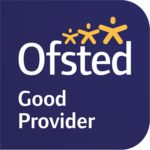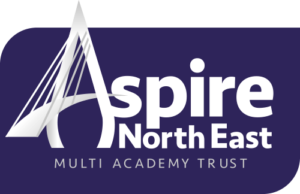English Language & Literature Curriculum Overview
Aim
English encompasses both the most basic core skill of all – the ability to communicate – and one of the most sophisticated – the ability to communicate well.
It is the most practical of subjects. Without literacy and oracy, all other parts of the curriculum fall down. And yet it is also the one where children can free themselves entirely from the everyday world, letting their imaginations run riot.
To succeed in English is the central prerequisite for access to most further study and careers – but more importantly, a love of reading can enrich your whole life, whatever route your follow.
At Southmoor it is our belief that reading, debate, writing, and the study of literature will allow our students not only to succeed in the world beyond school, but will enable them to understand the complexities of adult life with nuance, empathy, and the ability to see truth in paradox and contradiction. They will be better qualified, with greater skills, but they will also be better people – and happier.
Intent
Our curriculum is designed to lead students through a series of units sequenced to build in challenge and complexity as they move from Key Stage 3, through Key Stage 4, and into Key Stage 5. Over the course of this journey they will be exposed to a range of texts, encompassing different time periods, text types, cultures and styles. The choice of these texts will ensure that they have the skills, confidence and vocabulary to read independently, both for pleasure and in other curricular areas. The range they encounter will give them a broad cultural literacy that will be vital in adult life and the world of work, and the themes within each unit will support the teaching of British values and Spiritual, Moral, Social and Cultural development.
In tackling each unit of work, we will explicitly teach vocabulary and social and historical context to allow students the knowledge base to access the written texts we give them. Where appropriate, we will ensure that they are able to read whole texts, and where this isn’t the right approach, we will provide clear framing for the extract. Students will regularly complete extended writing, practicing literary analysis as well as creative writing and writing for different audiences and purposes. They will speak regularly, listen well, and practice active reading and note taking.
In lessons, the use of the Frayer model will support the explicit teaching of vocabulary, while ‘Think Pair Share’ will promote oracy. Live marking will provide instant feedback, while ‘heads down hands up’ will ensure the teacher is aware of the needs and understanding of the class. Every lesson will follow the Connect, Content, Consolidate plan, allowing the explicit teaching of English as a knowledge based subject.
Reading for pleasure
The English department leads on the whole school focus on Reading for Pleasure. Research is very clear on the benefits to learners of reading independently for just 20 minutes a day – and we as passionate English teachers are very clear that this is a pleasure that every child is entitled to.
We make space within the curriculum for reading in lessons, as well as running book clubs, reading time in morning registration and promoting reading in assemblies and across the school. We even take some lucky students to bookshops to buy their own books!
And if you struggle with reading, our early morning readers receive support from trained sixth formers and SEN staff, while the Lexia programme allows students to follow a proven system that will get them up to speed with their peers in no time.
Sequence and structure
Our curriculum is split into Key Stage 3 (years 7,8 and 9) and Key Stage 4 (years 10 and 11). This gives ample opportunity for coverage of all subject areas within the national curriculum, and other which we believe reflect the needs of the community we serve.
In Key Stage 3 English, we make no distinction between Literature and Language – the study of language comes through the study of literature.
- Each year we cover three concepts:
- Morality and Righteousness
- Power and Conflict
- Society and Social Class
Each of these is designed to allow us to revisit ideas each year with increasing complexity, building on previous domain-specific knowledge to scaffold the reading of more challenging texts that support the Key Stage 4 curriculum without replicating it.
A new principle that we are in the process of embedding is that cross-curricular links will allow students to acquire greater fluency in core knowledge and concepts, and will therefore support literacy across the curriculum – so beginning in 2022, we will be challenging students to carry knowledge over from one subject area to another, just as we expect them to apply literacy skills in every part of the school day.
Year 7 KS3 Curriculum
Click here to view the Year 7 English curriculum intent for 2023-2024.
In year 7 we begin our key concept of Morality and Righteousness by looking at Heroes and Villains. This key theme in literature will both link back to the study of mythology in Key Stage 2, and begin to embed the knowledge of text types, characters, literary forms and story structure that will be necessary as we journey towards more complex texts in Key Stage 4. The use of texts from Anglo Saxon and Medieval periods allows a link with the History Curriculum, so knowledge learned in one subject can support learning in the other.
From there, we will move to Power and Conflict – where we will look at war poetry using the central drama text, White Poppies. The overarching theme will allow us to explore different styles of poetry, building on the study of poetry at KS2, and learning core knowledge of poetic form and technique. While the texts used are distinct from those used at Key Stage 4, the contextual knowledge acquired will support later study.
The final term will be spent on a novel. This allows students to stretch themselves, reading a full and complex text that begins our discussion of Society and Social Class – but that also uses techniques of allegory and moral fable that point towards the first text of year 8, while cementing notions of heroism learned at the start of year 7.
Year 8 KS3 Curriculum
Click here to view the Year 8 English curriculum intent for 2022-2023.
We start year 8 by deepening the understanding of how literature can discuss the concepts of Morality and Righteousness. In year 7 we explored Heroes and Villains – now, by reading the morality tale of Animal Farm, we can see how heroes can become villains. This is the first fully ‘adult’ text they will have read in its entirety, raising the level of challenge significantly. At the same time, we will use the text to teach essential knowledge of political systems and British values – and link in to the Personal Development curriculum, the History curriculum, and the future Key Stage 4 study of An Inspector Calls.
From here, we now deepen student awareness of genre, and their skill in crafting their own writing, by looking at the concept of Power and Conflict through the ‘Dare to Scare’ unit on Gothic literature. This gives another chance to loom at a broad range of texts, but keeping them coherent through the focus on one core genre, and allows both an exploration of the literary canon, and a chance to look at modern media texts.
The final unit of the year looks again at Society and Social Class – this time delving into the Victorian era, using the central text of the play version of Oliver Twist in order to explore other texts by Dickens and other Victorian authors. The focus is on the experience of children in education and on social reform, building on ideas explored in Animal Farm, deepening the knowledge base and cultural awareness, and pointing forward to the Sign of Four in Year 9, as well as further onwards to An Inspector Calls at Key Stage 4.
Year 9 KS3 Curriculum
Click here to view the Year 9 English curriculum intent for 2022-2023.
Year 9 is the culmination of Key Stage 3 in that students now study texts equivalent in challenge to those they will study at GCSE that also broaden their knowledge base and familiarity with historical contexts.
We start with Conan Doyle’s The Sign of Four – a pre-20th century novel that both explores clear ideas about Morality and Righteousness, and yet does so using many outdated ideas. Students will be encouraged to read critically, questioning the assumptions the author makes, and enabling sophisticated discussion about many of the social issues at the end of the 19th century: class, race, crime and punishment and gender. In addition, it allows pupils to understand the role of the British Empire and make links with their history units. Pupils have already explored pre-twentieth century fiction in Year 7 and 8. This builds on their knowledge and skills of understanding author’s craft and using them as templates in their own writing. This unit also prepares pupils for the study of pre-20th century novel at KS4.
Power and Conflict is then represented by a unit on Women’s Voices, allowing us to explore a very different perspective from earlier years. The ambitious content of this scheme will help develop pupils’ skills in reading strategies by examining extracts from a range of seminal literature. It will focus on women’s voices but will also include other marginalised groups, allowing pupils to understand how writers reflect society’s views and bias. This will develop not only their own cultural heritage, but also have an appreciation of other cultures in our own society and around the world, in direct preparation for KS4 texts.
Pupils must study a play in KS3, and at the end of year 9 we study Blood Brothers. This scheme provides key thematic links with other texts in both KS3 and KS4. Pupils will begin to develop their knowledge of plays and how they differ from novels. They will begin to understand how characters are presented and how playwrights use structure effectively. They will further develop their analytical skills when examining the writer’s craft. This unit will further prepare pupils for the study An Inspector Calls and give a comparative for social issues in A Christmas Carol, both of which are central to KS4.
Year 10 KS4 Curriculum
Our Year 10 Key Stage 4 Curriculum
Click here to view the Year 10 English curriculum intent for 2023-2024.
In Key Stage 4, we study the AQA specification that studies: ‘Macbeth’, ‘A Christmas Carol’, ‘An Inspector Calls’ and the Power and Conflict Poetry anthology. Pupils are encouraged to think and speak analytically through challenging discourse and questioning. Pupils study the texts contextually discovering their relevance in today’s society by questioning how attitudes change in relation to gender, society and life-style. In Language, the department continuously updates and self-evaluates the resources we use in lessons so that reading and writing is meaningful and purposeful. Students access a range of fiction, non-fiction and literary non-fiction texts from the 19th, 20th and 21st century in order to extend skills developed in Key Stage 3. Writing opportunities are regular and pupils are taught to write clearly, coherently and accurately, using a range of sophisticated vocabulary and sentence structures and for different purposes and audiences. The spoken language is developed in all schemes of learning through discussion, debate and working collaboratively with peers.
We know that students who read well achieve well. As such all subject areas are committed to providing regular opportunities to read extensively. We provide regular opportunities for students to read for pleasure and to receive small group interventions if their reading skills are lower than we would expect.
Year 11 KS4 Curriculum
Our Year 11 Key Stage 4 Curriculum
Click here to view the Year 11 English curriculum intent for 2023-2024.
In Key Stage 4, we study the AQA specification that studies: ‘Macbeth’, ‘A Christmas Carol’, ‘An Inspector Calls’ the Power and Conflict Poetry Anthology and Unseen Poetry. Pupils are encouraged to think and speak analytically through challenging discourse and questioning. Pupils study the texts contextually discovering their relevance in today’s society by questioning how attitudes change in relation to gender, society and life-style. In Language, the department continuously updates and self-evaluates the resources we use in lessons so that reading and writing is meaningful and purposeful. Students access a range of fiction, non-fiction and literary non-fiction texts from the 19th, 20th and 21st century in order to extend skills developed in Key Stage 3. Writing opportunities are regular and pupils are taught to write clearly, coherently and accurately, using a range of sophisticated vocabulary and sentence structures and for different purposes and audiences. The spoken language is developed in all schemes of learning through discussion, debate and working collaboratively with peers.
We know that students who read well achieve well. As such all subject areas are committed to providing regular opportunities to read extensively. We provide regular opportunities for students to read for pleasure and to receive small group interventions if their reading skills are lower than we would expect.
KS5 Curriculum
How does our Curriculum cater for students with SEND?
In English, all SEND pupils will be supported by their teacher who will tailor learning to meet their specific needs and to reflect requirements of individual pupil passports where applicable. To develop confidence in all aspects of English, strategies will be implemented:
- Flexible group work
- Simplified/adapted resources with different stimulus to aid understanding
- Controlled pace of learning
- Tasks ‘chunked-down’ as appropriate
- Ensuring new ideas, concepts and vocabulary are clearly understood
- 1:1 teaching/checking-in throughout the lesson
- Seating plans adjusted to meet needs of individual students
- Instructions given personally and/or supported by visual prompts or written cues
- Written and oral sentence stems given
- Models, scaffolding and templates provided
As well as this, our school policies of ‘heads down, hands up’ and ‘think-pair-share’ will develop confidence. All of this will be focussed via individual lessons, one-to-one support and, in some cases, through the Lexia programme.
How does our curriculum cater for disadvantaged students and those from minority groups?
As a school serving an area with high levels of deprivation, we work tirelessly to raise the attainment for all students and to close any gaps that exist due to social contexts. The deliberate allocation of funding and resources has ensured that attainment gaps are closing in our drive to ensure that all pupils are equally successful when they leave the Academy.
In English, each member of staff holds a teaching handbook that identifies disadvantaged pupils. Pupils are placed in the classrooms with careful consideration so that they receive high quality focus and support from staff and peers. In assessment, positive discrimination is used to effective and detailed feedback is written in books. In line with school data drops, work is scrutinised, and disadvantaged pupils are identified and interventions put in place. These include: 1:1, lunchtime revision, bespoke independent work, free revision books and visits.
How do we make sure that our curriculum is implemented effectively?
The English curriculum leader is responsible for designing the English curriculum and monitoring implementation.
The subject leader’s monitoring is validated by senior leaders.
Staff have regular access to professional development/training to ensure that curriculum requirements are met.
Effective assessment informs staff about areas in which interventions are required. These interventions are delivered during curriculum time to enhance pupils’ capacity to access the full curriculum.
Curriculum resources are selected carefully and reviewed regularly.
Assessments are designed thoughtfully to assess student progress and also to shape future learning.
Assessments are checked for reliability within departments and across the Trust.
Every year, the English department meets to discuss, evaluate and adapt the KS3 and 4 curriculum based upon data, pupil voice, across trust discussions and primary visits. Key roles are allocated to experienced members of staff to ensure the monitoring of the curriculum is implemented correctly and effectively.
The Assistant Principal and subject leaders have clear roles and responsibilities to carry out curriculum design and delivery. They ensure that the curriculum within their key stage expertise has sufficient depth and coverage of knowledge in the subjects. Assessment timelines are created so that enough time is allocated to ensure there is a breadth and depth of a topic and LPs intervene where necessary. A mastery approach is used. These are shared across the Academy trust.
How do we make sure our curriculum is having the desired impact?
- Examination results analysis and evaluation, reported to the senior leaders and the local governing body to ensure challenge
- Termly assessments-analysis and evaluation meetings
- Lesson observations
- Learning walks
- Book scrutiny
- Regular feedback from Teaching Staff during department meetings
- Regular feedback from Middle Leaders during curriculum meetings
- Pupil surveys
- Parental feedback
- External reviews and evaluations




